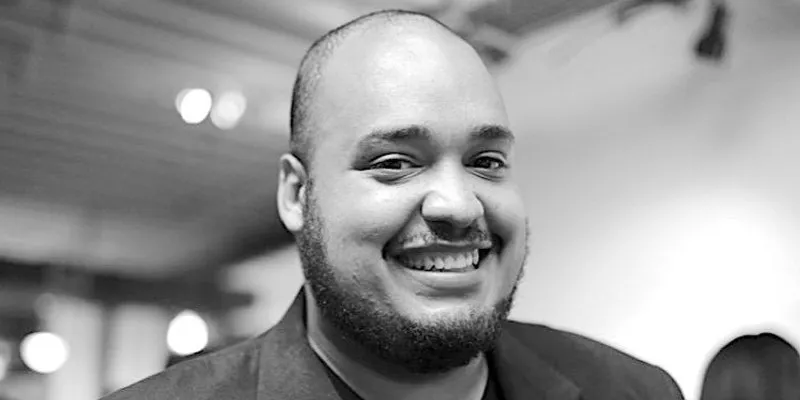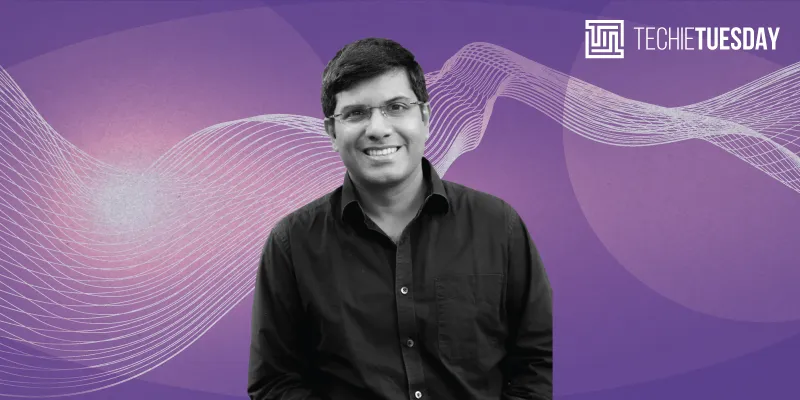WATCH: The week that was - From what’s likely to be cooking in India’s foodtech sector to PhonePe’s strategy and a make-in-India medtech startup
This week, our wrap leads you to YourStory Founder Shradha Sharma's interview with PhonePe Founder Sameer Nigam, who reveals how the digital wallet company is here to compete and fight back. And don’t miss our take on what's in store for the foodtech sector and other top stories.
Zomato, Swiggy, Uber Eats, Foodpanda, and now Amazon - the foodtech industry has single-handedly changed India’s eating habits, with many people now preferring to order in rather than dine out.
As we ready to step into 2020, the sector is sure to garner further attention and interest. And while we do expect more news from Swiggy and Zomato, the two unicorns in the space, the focus this year will be on bringing in more supply.
Several sources speculate that both foodtech biggies will end up raising more funds, about $200 million each. However, there isn’t any confirmation at the moment. It will also be interesting to see if Amazon enters the space and makes more waves. What is a certainty, however, is that the foodtech sector is poised to grow.
A recently released TechSci Research report, India Foodtech Market, said the foodtech market was projected to grow at a CAGR of over 12 percent from 2016 to 2021.
Growth in the market was anticipated on account of “increasing disposable income, growing average household income, and the rising trend of double-income-no-kids concept”. Here are the key trends that are likely to catapult the growth of India’s foodtech sector in 2020.
Now, let’s go from an ecosystem trend to the startup life. Starting up is never easy. But, Michael Seibel, CEO, Y Combinator, knows a thing or two about what works and does not work while starting up. Y Combinator (YC), the US-based startup accelerator, provides seed funding for startups, and has invested in more than 2,000 firms.
The company has also nurtured the likes of Airbnb, Dropbox, Stripe, and Instacart, which are all unicorns today. This year, Y Combinator has received around 16,000 applications for its winter batch.

Michael Seibel, the CEO of YCombinator.
Michael believes that starting up is not easy. It is not just about fundraising; it has more to do with building products that customers can use, and managing one’s own conflicts along with setting the agenda for the team.
In an exclusive interaction with YourStory, Michael shares his thoughts for the new decade, and talks about working with the best founders, why they make a difference, and what makes them successful.
And there’s no better example than Phone Pe Co-founder Sameer Nigam. In an exclusive interview, YourStory Founder and CEO Shradha Sharma asked Sameer Nigam about his company’s strategy to tackle other biggies in the sector. Talking about the cash burn and competition and accepting that competition was a challenge for the company, Sameer said PhonePe was here to compete and fight back.

YourStory Founder and CEO Shradha Sharma in conversation with PhonePe CEO Sameer Nigam.
He said that cash burn was not sustainable, but “we have to live with it in India”.
Speaking about UPI and policy changes that shaped the competition in India, Sameer feels that Paytm played the wallet story very well.
“And then, PhonePe and UPI were doing a pretty good job. Subsequently, the government came on as a competitor. Every multinational is coming as a competitor. You have two options in this. Either you raise capital and you compete or you throw in the towel and say Indian startups can’t compete. And in the last 10 years, Sachin and Binny at Flipkart, and Bhavish at Ola have shown that Indian startups can compete. Entrepreneurs in India are saying, ‘you know what – we are going to compete – we are going to compete hard.’ And that, unfortunately, involves very aggressive cashbacks.”
Also at PhonePe, Rahul Chari, Co-founder and CTO, reveals why “hustle is overrated when it comes to technology”.
“Don’t try taking the shortest path; think at least two years ahead and anchor yourself to something that you can build continuously,” he says.

Rahul Chari, Founder and CTO of PhonePe.
Unlike many other founders who think of IIT as the only stepping stone to success, Rahul believed differently. He cracked the premier exam and got admission to IIT-Bombay in 1995, but decided to bypass the institute. Instead, he joined the University of Mumbai to do what he always wanted to do: computer science engineering.
Today, the three-time entrepreneur has over 18 years of experience in storage visualisation, content management, and supply chain technology.
A typical startup hustle culture encourages one to build something as early as they can, iterate and fine-tune it, run towards hitting hockey-stick growth and then figure out how to rebuild the product for scale. Rahul, however, believes otherwise. Born from the Flipkart stable and with access to capital, PhonePe had the luxury to build its systems right. With that possibility, Rahul says he did not want to rush into building the platform. Here is why he started up and found success.
Tech may be ruling the world, but what about industries other than tech?
In the Marvel vs DC battle, there is one clear winner: the fans. These are the people who have devoted their valuable time, effort, and, of course, the big bucks in appreciation of their favourite superheroes. Whether it is for a first-day, first-show ticket or on rare action figures and collectables that subsequently flood the market, the price tag really has little to do here.
No wonder then that riding on the back of these trends, the market for superhero merchandise has skyrocketed in the last decade. In India alone, there are a dozen brands which have, with the emergence of the millennial and Gen Z spender, leveraged changing consumer behaviour and associated nostalgia to monopolise the pop culture market.

Devesh Chhabria, Co-Founder, Superhero Toystore.
The Superhero Toystore, the brainchild of brothers-turned-entrepreneurs Devesh Chhabria and Namit Gvalani, is also en route to such prominence. Started in 2014, the Mumbai-based startup was purely born out of the passion for toys and the love of superheroes. Today, the ecommerce store is a one-stop destination for everything superhero and beyond.
You’re in your mid-thirties and your family business gets sold for more than $300 million. What would you do next? For Ankit Kedia, starting up was a no-brainer after packaging giant Manjushree Technopak, which was built over four decades and had marquee names like Coca- Cola as clients, was sold last year. But, he felt that it was important to find the right sector to start up in. A sector where there was a gap that he could successfully bridge.

Ankit Kedia, the Founder of Caremont, wants to bridge the gaps in the medtech and heathtech fields.
“I realised I had to do something in the medical field. After selling stake in Manjushree, I saw the gap in the field of medical and healthtech equipment. But I had to understand that market first before getting into manufacturing,” says Ankit Kedia, the Founder of Caremont.
Bengaluru-based medtech startup Caremont, founded in 2019, offers “the very best in healthcare products and services” by providing quality medical equipment and devices.
The eight-member Caremont team is currently working hard with one goal in mind: building the next valuable company in India. "We want to begin making in India by FY22 and reach revenue up to Rs 8 crore at the same time,” Ankit says.
(Edited by Teja Lele Desai)






![[YS Learn] Key takeaways from Morgan Housel’s ‘The Psychology of Money’](https://images.yourstory.com/cs/2/11718bd02d6d11e9aa979329348d4c3e/Imagewf2p-1607509774638.jpg?mode=crop&crop=faces&ar=1%3A1&format=auto&w=1920&q=75)

